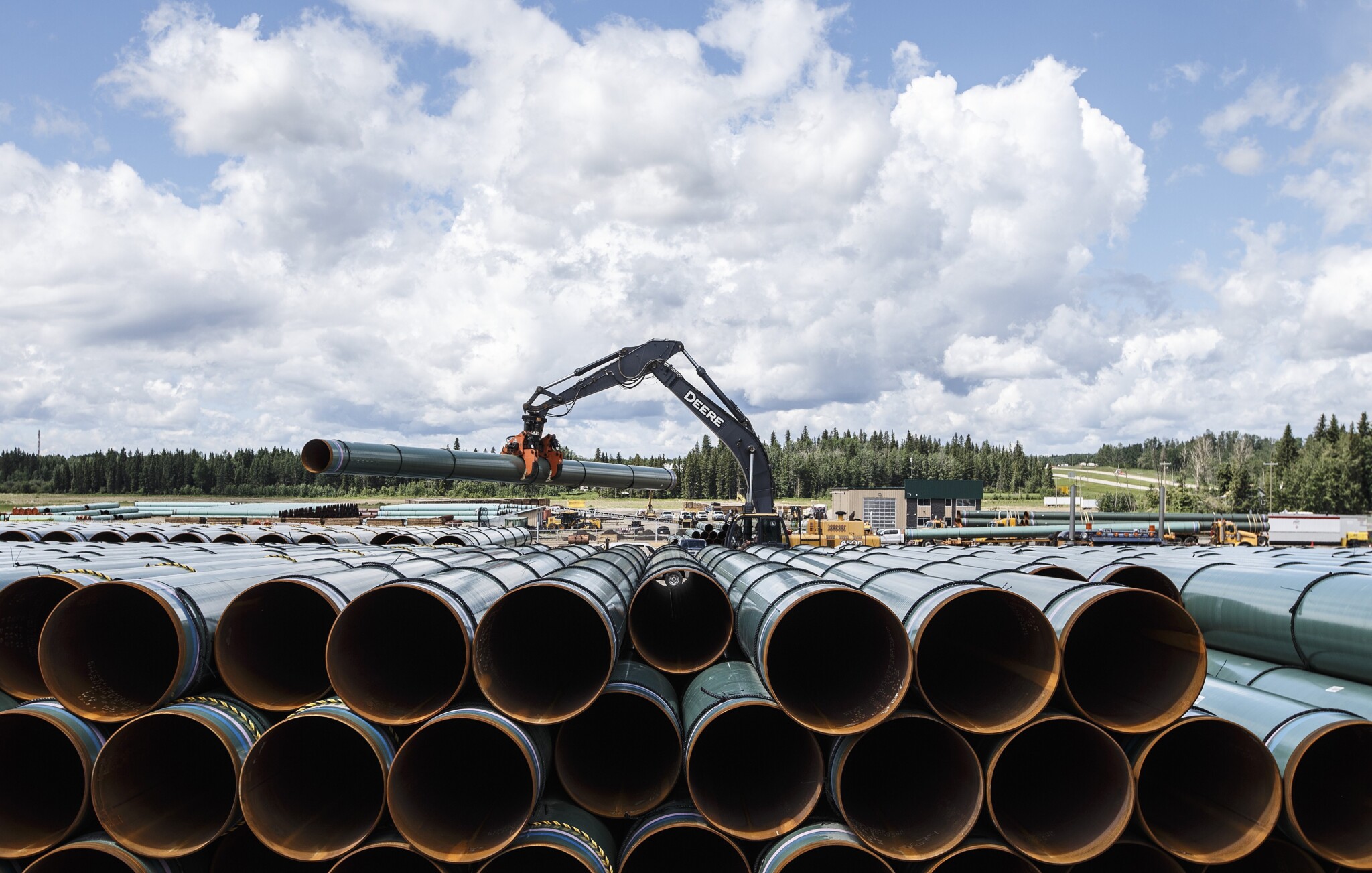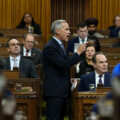Jobs, economy, pipelines. Few words have so defined Jason Kenney as when he drove across Alberta in his blue Dodge Ram, campaigning as leader of the newly merged United Conservative Party in the 2019 election.
He did so with a laser focus on creating jobs and building pipelines, later going so far as to invest $1.5 billion of public money to back the Keystone XL project.
A revoked permit, a pandemic, an unfinished premiership, and several commodity cycles later, those same issues remain at the centre of Alberta’s political debate about its future.
In an interview with The Hub’s Alberta Edge podcast, Kenney reflected on the familiar obstacles standing in the way of Alberta’s energy ambitions—the usual mix of regulatory barriers like the tanker ban, the proposed emissions cap, and Bill C-69—as well as a few new faces in charge who, he says, have “forgotten” which jurisdiction interprovincial pipelines fall under.
“The whole premise of Confederation is an economic union,” said Kenney, who also served for nearly a decade in Stephen Harper’s cabinet. “Coastal provinces do not have the authority to block the export of products produced in the landlocked provinces.”
Eby and Hodgson are out of line
He’s taking aim, of course, at B.C. Premier David Eby and federal Energy Minister Tim Hodgson—the first for dismissing Alberta’s bitumen pipeline as a “fictional” project with no backer, financing, or broad First Nations consent; and the second for suggesting Alberta must first win B.C.’s blessing.
“This is a guy who’s in office, who wants to use his political authority to block a prospective interprovincial pipeline,” Kenney said about Eby.
“This is not my opinion, this is not an arguable point,” he continued. “It was recently reaffirmed unanimously by the B.C. Court of Appeal and the Supreme Court of Canada in striking down an effort of the B.C. NDP government several years ago to block the Trans Mountain expansion, and they lost unanimously at both of those top courts because section 92(10) of the Constitution Act says very clearly that interprovincial infrastructure is an exclusive federal responsibility.”
On Hodgson, Kenney was no less blunt.
“This is really bizarre,” he said, referring to the energy minister’s recent comment before the Senate, where Hodgson said Ottawa would act as a “constructive participant” in conversations between Alberta and B.C.
“I can’t believe I’m saying this, but Justin Trudeau was more in favour of coastal pipelines, and ‘one Canadian economy,’ and federal paramountcy, when it comes to national infrastructure like this,” Kenney said, in reference to Trudeau’s fight to get TMX built.
“I want [Mark Carney] to succeed. I want him to achieve the expectations that he set for himself and his government in the last election… So it’s time that he meets the rhetoric and expectations with action.”
Firm public support for pipelines
Kenney insists the public is on his side.
A new Angus Reid Institute poll released Oct. 9 found that 59 percent of Canadians support the idea of a pipeline running from northern Alberta to the northwest coast of B.C. Even in B.C., a majority of 56 percent of respondents said they would back the project, compared to 33 percent opposed.
Support runs higher in every province except Quebec, where 50 percent are in favour.
But the picture becomes more nuanced when the questions turn to jurisdiction, veto power, and environmental regulation.
Nearly half of Canadians—and a majority of British Columbians—say provinces should have the right to set conditions or block projects that cross their territory, while Albertans overwhelmingly reject the idea that one province should be able to obstruct another’s access to tidewater.
Still, what’s most striking is a broader shift in national priorities.
For the first time in nearly a decade, a majority of Canadians said this spring that they now prioritize economic growth over environmental protection when it comes to shaping energy policy—a reversal from 2016 to 2025.
“Every poll in the last two or three years indicates a super majority of British Columbians and Canadians in every region support a northwest B.C. coast oil pipeline,” Kenney said.
“By the way, Indigenous communities would be the biggest winners in a West Coast oil pipeline through equity participation, which is the new model for resource development projects for First Nations,” he added. “They would be the biggest winners in terms of employment.”
Special interest groups remain opposed
The Hub recently analyzed federal lobby records and found that opposition to Alberta’s proposed pipeline started taking shape months before Premier Danielle Smith announced her intentions.
Throughout the summer and fall of 2025, environmental organizations and First Nations filed a flurry of communications with Ottawa during the consultations on Bill C-5, which became the “nation-building” framework overseen by the Major Projects Office based in Calgary.
“I want to look at the glass being half full,” Kenney said in response. “Those groups, I think, carry much less influence than they did in the past. And you can see that they’ve lost the fight for public opinion.”
Still, he argues, their worldview continues to have a firm grip on B.C.’s political establishment.
“So what’s this all about? John Horgan, the late, great [B.C.] NDP premier, he was a good friend of mine,” Kenney recalled. “He was a common-sense, pro-jobs, blue-collar, old-school New Democrat. He told me that when B.C. lost the Supreme Court on the TMX issue, he said, ‘Jason, we’re downing tools, we are going to make sure this is built.’
“He said, ‘We acknowledge that you guys are on the right side of this legally now.’ But he said, ‘You need to be aware that I’ve got a mud hut wing in the B.C. New Democratic Party who opposes any kind of major resource project.’”
Kenney finished his anecdote by drawing a straight line to the current B.C. premier.
“David Eby is the leader of the mud hut wing,” Kenney said. “He’s trying to block Canadian prosperity, undermine our Constitution, make us more dependent on the United States, and further impoverish First Nations.”
That, in his opinion, makes Eby a bigger threat to Canada’s unity than Donald Trump and even Alberta separatists.
Does federal jurisdiction over interprovincial pipelines override provincial authority to block them?
Has public opinion shifted towards prioritizing economic growth over environmental protection in energy policy?
What role do First Nations play in the debate over new pipeline projects?












Comments (1)
With no economy there is no money available for all the social issues we have in our country. Why can’t people understand that our energy is cleaner than what other countries that need are oil and gas use.